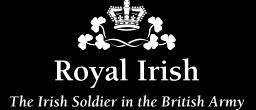Raising of the 86th Regiment of Foot

|
| 86th, 1793. |
The regiment was raised by Major General Cornelius Cuyler and was first known as ‘General Cuyler’s Shropshire Volunteers’. His appointment as Colonel was on 30 October 1793 and the following day a Royal Warrant was granted for recruitment. He received the following confirmation letter by order of the King:
GEORGE R
Whereas we have thought fit to order a regiment of foot to be forthwith raised, under your command, which is to consist of ten companies, with three serjeants, three corporals, two drummers, and fifty-seven private men in each company, with two fifers to the grenadier company, besides a serjeant-major and quarter-master-serjeant, together with the usual number of commissioned officers; these are to authorise you, by beat of drum, or otherwise, to raise so many men in any county or part of our kingdom of Great Britain, as shall be wanted to complete the said regiment to the above-mentioned numbers.
And all magistrates, justices of the peace, constables, and other our civil officers, whom it may concern, are hereby required to be assisting onto you, in providing quarters, impressing carriages, and otherwise, as there shall be occasion.
Given at Our Court, at St James’s, this 1st day of November, 1793, in the thirty-fourth year of Our reign.
 With Lieutenant Colonel George Sladden as commanding officer, the regiment left Shrewsbury and embarked for Ireland in April 1794, first landing at Cork and then marching to Kilkenny.
With Lieutenant Colonel George Sladden as commanding officer, the regiment left Shrewsbury and embarked for Ireland in April 1794, first landing at Cork and then marching to Kilkenny.
Around this time the Regiment received its designation as the 86th Regiment of Foot, also known as The Shropshire Volunteers. Major General Cuyler’s colonelcy lasted less than one year as he was succeeded on 20 June 1794, by Lieutenant General Russell Manners. In 1795 the 86th absorbed the remnants of the 118th Regiment of Foot (Fingall’s Regiment) and the 121st (Loyal Clare).
In later years the 86th became an Irish regiment, named the Leinster Regiment of Foot, and acquired the nickname of 'The Irish Giants' owing to the fine physique of its soldiers.





